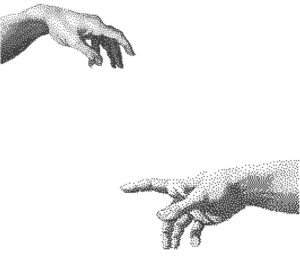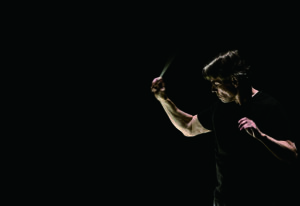노먼레브레히트칼럼|SINCE 2012
영국의 평론가가 보내온 세계 음악계 동향
히틀러와의 악수
전 세계적 현상이 되어가는 예술지원금 축소에 대한 우려
 일전에 이란 출신 하프시코드 연주자 마한 에스파하니(1984~)가 X(구 트위터)에 “악수로 몇 다리를 건너면 히틀러와 만나나요?”라고 묻는 글을 게시한 적이 있다. 응답자 대부분은 서너 번의 악수로 히틀러와 닿았다. 나의 경우 한 번, 즉 내가 악수한 이 중에 히틀러와 악수한 사람이 있다.
일전에 이란 출신 하프시코드 연주자 마한 에스파하니(1984~)가 X(구 트위터)에 “악수로 몇 다리를 건너면 히틀러와 만나나요?”라고 묻는 글을 게시한 적이 있다. 응답자 대부분은 서너 번의 악수로 히틀러와 닿았다. 나의 경우 한 번, 즉 내가 악수한 이 중에 히틀러와 악수한 사람이 있다.
그 사람의 이름은 존 데니슨(1911~2006). 1934년 지휘자 토머스 비첨(1879~1961)은 코번트 가든의 ‘니벨룽의 반지’ 시리즈를 위한 바그너 튜바를 구매해 오라며 영국 런던 오케스트라의 20대 호른 연주자였던 존을 독일 바이로이트로 보낸다. 그는 거기서 술 취한 금관악기 연주자들이 있는 펍을 찾았다. 맥주를 몇 잔 들이켠 그에게 연주자들이 이튿날 밤 ‘라인의 황금’ 연주를 함께 하자고 권유했다. “잠깐, 검은색 정장을 갖고 오지 않았네.” 존이 말하자 음악가들이 웃으며 답했다. “아무도 피트에 들어가 있는 우릴 못 본다네. 우린 그래서 조끼와 반바지 차림인걸.”
이들은 요란하게 라인강 바닥을 휘저었고, 연주가 끝나자 검은 제복을 입은 두 남성이 존에게 따라오라 명령했다. 객석을 돌아 계단을 따라 올라가자 나치 친위대(SS)가 노크를 하고 뒤로 물러나 나치식 경례를 했다. 안쪽에서 아돌프 히틀러가 자리에서 일어나며 팔을 뻗었다. “웬 영국인이 오늘 밤 우리 오케스트라에서 연주했다더군.” 히틀러는 활짝 웃으며 말했다. 반(反) 히틀러 세력을 숙청한 ‘장검의 밤’(1934)에 대해 들었던 존은 가능한 한 빠르게 그 자리를 떴다.
예술지원에 방해물이 없던 시절
이 이야기를 왜 하냐고? 존은 나의 영웅이기 때문이다. 그는 보병대에 입대하기 전 토머스 비첨과 5년을 더 연주했다. 종전 후 그는 존 메이너드 케인스(1883~1946)의 예술위원회에 음악감독직으로 합류하여, 과거 ‘음악이 없는 땅’에 활기를 불어넣는 임무를 맡는다. 존은 내게 “별로 어렵지는 않았습니다. 곳곳에 수백 파운드가 널려 있었거든요”라고 말한 바 있다.
“로열 오페라 하우스의 데이비드 웹스터가 전화를 걸어 저녁 식사 후 잠시 들를 수 있겠냐 묻더군요. 그가 ‘존, 지금 자금이 바닥났습니다. 다음 주 급여를 줄 수 있을 것 같지가 않아요’라길래, 다음 날 아침 1천 파운드 수표를 보냈습니다. 그땐 그런 식으로 처리를 했죠. 서류 같은 것 없이 조용하게요.”
자금 제공자와 예술 제작자가 같은 편에 서 있던 시대에는 일이 비공식적으로 해결됐다. 한때 백화점 매니저였던 웹스터는 아마추어로 시작해 세계 최정상 단체를 설립했다(그는 꼭 수표를 상환했다고 존은 말했다). 존 데니슨은 문제투성이 로열페스티벌홀과 작은 홀을 책임졌는데, 그가 은퇴할 무렵 런던 사우스뱅크센터는 전 세계에서 가장 큰 예술 문화 공간으로 자리매김했다. 내가 그를 알던 시기인 1990년대에 존은 무에서 유를 창출하는 자신의 일에 겸허히 만족하던 사람이었다.
한 세기 만에 무너져 내린 예술지원

에사 페카 살로넨 ©Minna Hatinen/Finnish National Opera and Ballet
이제 오늘날의 재앙과 비교 대조해 보자. 영국 예술위원회(ACE)는 2030년까지 “우리 모두의 창의력을 중시하는 국가가 될 잉글랜드”를 약속하는 ‘레츠 크리에이트(Let’s Create)’ 정책에 목을 매고 있다. 사우스뱅크센터는 이제 일주일 중 나흘만 문을 연다. 잉글랜드 동부에서는 관현악 공연이 자취를 감췄고, 런던에서 만날 수 있는 오페라는 유럽 그 어느 곳의 수도보다 적다.
예술계의 풍토가 변한 건 비단 영국만의 일이 아니다. 문화는 정치적으로 평가 절하되고 있다. 지난 6월 미국 플로리다주지사 론 디샌티스(1978~)는 플로리다주의 모든 예술 보조금을 폐기했고, 도널드 트럼프 후보는 당선되면 미국 국립예술기금(NEA)을 폐지하겠다고 공약했다. 샌프란시스코에서는 자금 지원 부족으로 저명한 지휘자(에사 페카 살로넨)가 떠났다. 미국 음악 평론계의 한 원로는 “폭풍이 다가오기 전 불안한 고요, 파멸을 피할 수 없는 기분”에 대해 적었다.
예술계 예산을 축소하는 다음 타자는 올해 하계 올림픽을 위해 초과 지출 중인 프랑스가 될 것이다. 독일은 여기에 한술 더 뜬다. 첼로와 오보에 연주자가 한 무대에서 서로를 들을 수 있는 콘서트홀이 필요한 뮌헨은 이 사업을 2036년까지 대기하겠다는 결론을 냈고, 쾰른은 2012년부터 오페라 하우스가 부재한 상황이다. 이번 여름 바이로이트는 임금 법안 충족을 위해 합창단원 중 3분의 1을 해고 중이다. 유럽 전역에서 되살아나고 있는 우파 세력은 문화유산에 대해 아무런 관심을 보이지 않으며, 좌파의 기후 위기 및 하마스 선동가들 역시 후원가들을 몰아내고 있다.
학계는 축소되고 있다. 옥스퍼드 브룩스 대학교는 음악과를 폐지했고, 영국 학교 다섯 곳 중 두 곳에서는 학생들이 음악 시험을 보지 않는다. 학생들은 레슨을 더 적게 받고, (내가 목격한 바로는) 많은 이들이 숙제를 하기 위해 자동화 프로그램을 사용한다. 이제 예술은 사람과의 접촉과 영감, 독창성을 잃고 있다. 그렇다면 무엇을 해야 할까? 상황이 쉽게 해결될 것 같진 않아 보인다.
작은 변화를 큰 의미로 바라보기
 금이 간 정도가 몹시 커서 일을 바로잡기 위해서는 새로운 정부를 꾸리고 기존의 정책 일체를 불태우는 것 이상이 필요할 지경이다. 우선 사람들에게 소정의 예술이 우리 사회의 불우한 이들에게 만들어내는 변화에 대해 말하는 것으로 시작해야 한다. 그리고 이는 음악가들이 병원과 요양원에 방문했을 때 사람들의 눈동자에 서린 빛을 보는 것만으로도 충분하다. 오페라 단체가 주도하는 온라인 연주회는 코로나19 이후 시기의 회복에 도움을 주고 있다. 교도소에서의 오페라 상영은 전과자들에게 감동적인 진리를 선사한다. 사이먼 래틀은 무대 위로 청각장애 아동들을 불러 교향곡의 진동을 ‘듣게’ 했다. 그 교향곡을 작곡한 베토벤이 했던 것과 동일한 방식으로 말이다.
금이 간 정도가 몹시 커서 일을 바로잡기 위해서는 새로운 정부를 꾸리고 기존의 정책 일체를 불태우는 것 이상이 필요할 지경이다. 우선 사람들에게 소정의 예술이 우리 사회의 불우한 이들에게 만들어내는 변화에 대해 말하는 것으로 시작해야 한다. 그리고 이는 음악가들이 병원과 요양원에 방문했을 때 사람들의 눈동자에 서린 빛을 보는 것만으로도 충분하다. 오페라 단체가 주도하는 온라인 연주회는 코로나19 이후 시기의 회복에 도움을 주고 있다. 교도소에서의 오페라 상영은 전과자들에게 감동적인 진리를 선사한다. 사이먼 래틀은 무대 위로 청각장애 아동들을 불러 교향곡의 진동을 ‘듣게’ 했다. 그 교향곡을 작곡한 베토벤이 했던 것과 동일한 방식으로 말이다.
음악은 다양성과 평등 주문을 늘어놓는 게 아니라 ‘요람에서 무덤까지’ 모든 이들에게 다가감으로써 존재를 입증한다. 이것이 존 데니슨이 내게 가르쳐 주었던 방식이며, 현재 우리가 수정주의의 태풍 속에서 잃어 가는 것이기도 하다. 예술의 중요성은 클릭 수나 데이터, 교향곡 연주회에서 촬영하겠다는 관객들을 허용하는 것으로 측정할 수 없다. 간단히 말하자면, 예술을 보편화하여 누구나 실시간으로 저렴하게 접할 수 있게 하면 된다. 다른 대안은 너무 끔찍해서 숙고할 수조차 없다.
우리를 고양하고 결속시키는 이 서구 문명의 정점에 대해 폄하하고, 탈식민지화를 외치는 선동가들을 이대로 둘 것인가? 그렇다면 우리에게 남은 미래는 조지 오웰의 소설 ‘1984’ 속 군중심리를 따르는 폭도처럼, 올바른 슬로건을 외치는 이를 짓밟는 사람들이 될 것이다. 악몽 같은 시나리오는 우리 곁에 아찔하게도 가까이 다가와 있다. 단 한 번의 악수로 제2의 아돌프 히틀러와 닿을 정도로 가깝다. 번역 evener
Shaking hands with Hitler
The harpsichordist Mahan Esfahani tweeted the other day asking, how many handshakes to Hitler? Most respondents touched Adolf at three or four removes. I managed it in one contact.
John Denison, his name was. A 20-ish horn player in the London orchestras, he was sent by Sir Thomas Beecham to Bayreuth in 1934 to buy Wagner tubas for a Covent Garden Ring cycle. John located the pub where the brass players drank. After a couple of steins, he was urged to play Rheingold with them the following night. ‘Hang on, I haven’t got a black suit,’ said John. ‘In the pit no-one can see us,’ laughed the musicians. ‘We wear vests and shorts.’
All went noisily down the Rhine until, as the curtain fell, two men in black uniform ordered John to come with them. Round the auditorium they walked and up a flight of stairs. The SS knocked at a door and stood back, arm-heiling. Adolf Hitler rose from his seat inside, extending his hand. ‘They told me an Engländer played in our orchestra tonight,’ he beamed. John, who had heard about the Night of the Long Knives, left as quickly as he could.
Why am I sharing this? Because John is a hero of mine. He played five more years for Beecham before joining the Infantry. After an outstanding war, he joined John Maynard Keynes’s Arts Council as director of music, charged with revitalising the former ‘land without music’. ‘It wasn’t that hard,’ he’d tell me. ‘A few hundred pounds here and there.’
‘I’d get a call from David Webster at the Royal Opera House, asking if I could pop by after dinner. He’d say, “John, we’re running out of money. I don’t think I can pay the wages next week.” Next morning, I’d send round a thousand-pound cheque. That’s how it was done: no forms to fill, no fuss.’
In an age when providers of funds were on the same side as makers of art, informality got things done. Webster, a former department store manager, built a world-class company from amateur beginnings (‘he always repaid my cheque,’ said John). John Denison took charge of the troubled Royal Festival Hall alongside its two smaller side-halls. By the time he retired London’s South Bank was the world’s largest arts complex. John, in his 90s when I knew him, took a modest satisfaction in his career of creatio ab nihilo.
Compare and contrast today’s calamities. Arts Council England is hitched to a ‘Let’s Create’ policy which promises that by 2030 ‘England will be a country in which the creativity of each of us is valued.’ The South Bank is now open only four days a week. The east of England has been denuded of orchestral concerts and London sees less opera than any European capital.
But it’s not just in Britain that the arts climate has changed. Culture has been politically devalued. In Florida, Governor Ron De Santis, last month scrapped all state arts subsidies. Donald Trump pledges, if elected, to abolish the National Endowment for the Arts. San Francisco has seen a famed conductor quit for lack of funds. The doyen of US music critics writes of ‘an inescapable feeling of doom, of disquieting calm before the storm’.
France, overspending on this summer’s Olympics, will be the next to cut back on arts. Germany has gone soft. Munich, which needs a concert hall where cellos can hear the oboes (and vice-versa), has been told it must wait until 2036. Cologne has been without its opera house since 2012. Bayreuth this summer is laying off a third of its chorus to meet wage bills. Europe’s resurgent right shows no interest in cultural heritage. On the left, climate and Hamas agitators are driving sponsors away.
Academia is shrinking. Oxford Brookes University shut down its music department. Two in five English schools enter no children for music exams. Pupils have fewer lessons. Many (I have witnessed) respond to an automated program to get their homework right. Arts are being drained of human contact, inspiration and ingenuity.
So what’s to be done? The situation is not easily remediable. So much damage has been inflicted that it will take more than a new government and a bonfire of policy documents to put things right. We need to start by reminding people of the difference a dose of art can make to the less fortunate in society. All it takes is to see the light that shines in eyes when musicians visit hospitals and care homes. Online singing, led by opera companies, is accelerating post-Covid recovery. Opera in prisons puts ex-offenders in touch with emotional truths. Deaf children, brought on stage by Simon Rattle, ‘hear’ vibrations in a symphony in just the same way as Beethoven who composed it. Music makes its case not by spouting diversity and equality mantras, but by reaching out to every citizen from cradle to grave. That’s what John Denison taught me and that’s what we risk losing in this present revisionist storm. The importance of art is not measured in clicks, or data, or letting people use their phones to film in a symphonic concert. It is about making art universally available and affordable in real time – simple, really. The alternative is too appalling to contemplate.
If we let rabble rousers denigrate and decolonise the summits of western civilisation that elevate and unite us we will be left with a 1984 mob mentality that nullifies anyone who refuses to parrot the right slogans. That nightmare scenario feels terrifyingly close at hand – so close, it is no more than a handshake away from the next Adolf Hitler.
글 노먼 레브레히트 영국의 음악·문화 평론가이자 소설가. ‘텔레그래프’지, ‘스탠더즈’지 등 여러 매체에 기고해왔으며, 지금 이 순간에도 자신의 블로그(www.slippedisc.com)를 통해 음악계 뉴스를 발 빠르게 전한다







